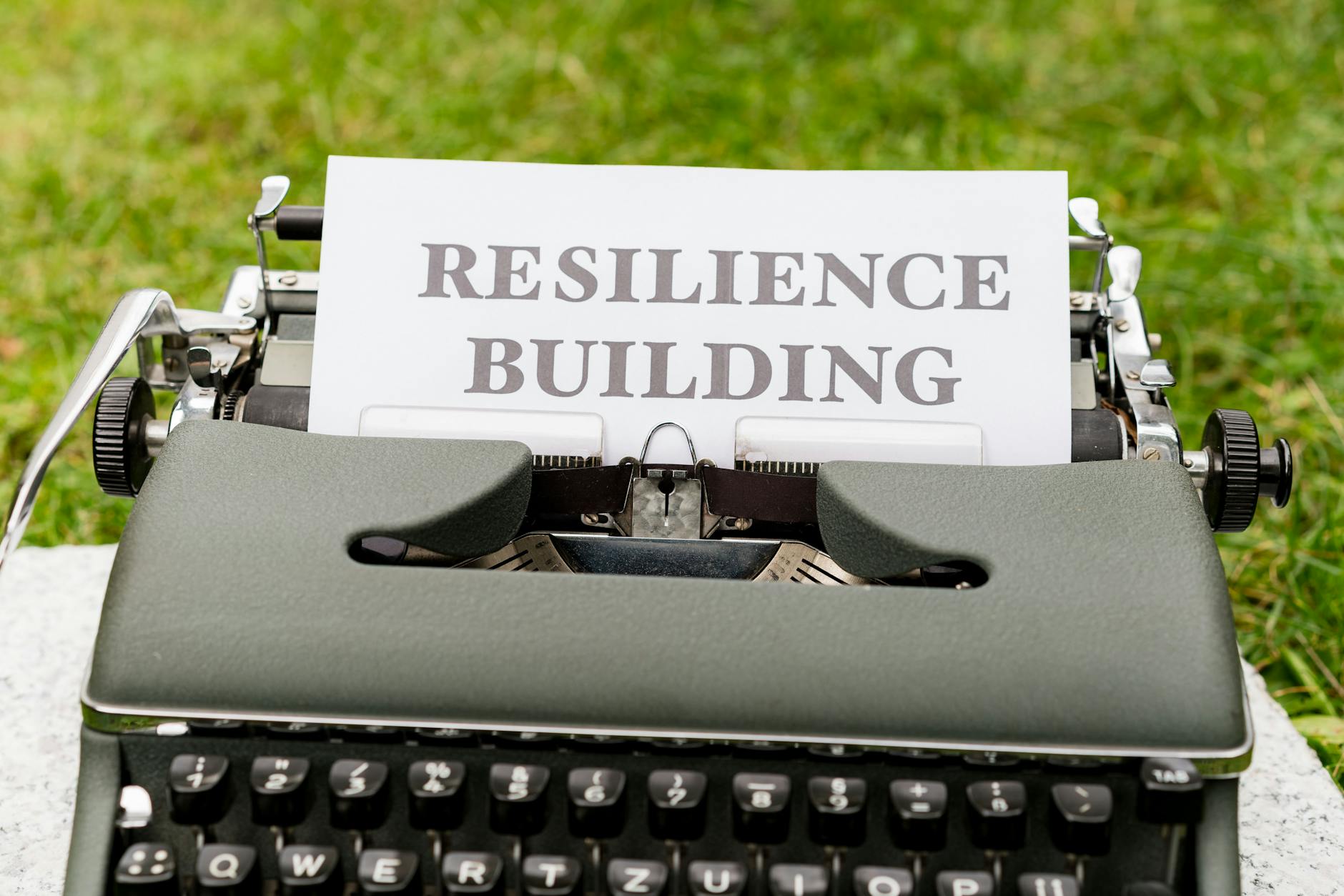In the face of life's challenges, having emotional resilience is crucial. It's the ability to adapt and bounce back when things don't go as planned. Emotional resilience empowers individuals to navigate difficult situations with grace and determination. In this blog post, we will delve into strategies and techniques to help you master emotional resilience, allowing you to thrive in the face of adversity.
Understanding Emotional Resilience
Emotional resilience refers to the ability to adapt and bounce back from difficult experiences, setbacks, and adversity. It involves coping with the stress of life while maintaining a sense of control and well-being. Individuals with emotional resilience are better equipped to confront and overcome challenges, remain optimistic in the face of adversity, and navigate through difficult situations with a positive outlook.
What Is Emotional Resilience?
Emotional resilience encompasses the capacity to manage and address emotional responses to various situations effectively. It involves recognizing one's own emotions, understanding the triggers, and developing coping strategies to navigate through stressful circumstances. Building emotional resilience requires cultivating self-awareness, emotional regulation, and the ability to adapt to change. It is a skill that can be developed and honed over time through practice and self-reflection.
The Importance of Emotional Resilience
Emotional resilience is crucial for maintaining mental and emotional well-being in the face of adversity. It enables individuals to effectively manage stress, anxiety, and hardship, leading to improved overall mental health. Moreover, emotional resilience fosters a positive outlook on life, enhances problem-solving abilities, and promotes healthy relationships.

Photo by Markus Winkler
Factors Influencing Emotional Resilience
Before delving into the strategies for building emotional resilience, it's essential to understand the factors that influence one's ability to bounce back from adversity. Emotional resilience is shaped by a combination of biological, environmental, and psychological factors.
Biological Factors
Biological factors, such as genetics and neurobiology, play a significant role in determining an individual's emotional resilience. Research suggests that genetic predispositions can impact how an individual responds to stress and trauma. Furthermore, the brain's neuroplasticity, the ability to adapt and rewire in response to experiences, contributes to emotional resilience. Understanding the interplay between genetics and neurobiology provides insights into how individuals navigate and overcome challenging circumstances.
Environmental Factors
The environment in which an individual is raised and lives also influences emotional resilience. Adverse childhood experiences, socioeconomic status, access to support systems, and exposure to trauma can shape an individual's ability to cope with stress and adversity. A nurturing and stable environment can foster emotional resilience, while a turbulent or unsupportive environment may pose challenges to its development.
Psychological Factors
Psychological factors encompass cognitive processes, coping mechanisms, and self-perception. The way individuals interpret and appraise stressful events, their problem-solving skills, and their self-efficacy all contribute to their emotional resilience. Moreover, the presence of mental health conditions, such as anxiety or depression, can impact one's ability to bounce back from setbacks. Understanding these psychological factors provides valuable insights into the development of strategies to enhance emotional resilience.

Photo by Kindel Media
Developing Emotional Resilience
Emotional resilience is the ability to adapt and bounce back from adversity. It involves cultivating a growth mindset, building a strong support network, and developing coping strategies.
Cultivating a Growth Mindset
Developing a growth mindset involves embracing challenges, persisting in the face of setbacks, and seeing effort as a path to mastery. This mindset enables individuals to view failures as opportunities for growth rather than as a reflection of their abilities. By focusing on the process rather than the outcome, individuals can develop the resilience needed to navigate life's challenges.

Photo by Alena Koval
Building a Strong Support Network
A strong support network is crucial for emotional resilience. This network may include friends, family, mentors, or support groups. These connections provide a sense of belonging and security, offering a space to express emotions and seek guidance during difficult times. By nurturing these relationships, individuals can better navigate the challenges they encounter.
Developing Coping Strategies
Coping strategies are essential for managing stress and adversity. They may include mindfulness practices, physical exercise, journaling, or seeking professional help. By developing effective coping strategies, individuals can better regulate their emotions and maintain a sense of control in challenging situations.

Photo by cottonbro studio
Strategies for Building Emotional Resilience
Developing emotional resilience is vital for coping with life's challenges. There are several effective strategies for building emotional resilience, including practicing mindfulness and meditation, seeking professional help when needed, and finding meaning in adversity.
Practicing Mindfulness and Meditation
Mindfulness and meditation techniques can help individuals cultivate a sense of inner peace and emotional stability. By focusing on the present moment and learning to observe thoughts and emotions without judgment, individuals can develop a greater awareness of their internal experiences. Mindfulness practices can reduce stress, anxiety, and rumination, promoting emotional well-being. Engaging in regular meditation sessions can contribute to increased emotional resilience by fostering a calm and centered mindset. Incorporating deep breathing exercises and gentle movements into the practice can further enhance relaxation and emotional balance.

Photo by Kelvin Valerio
Seeking Professional Help When Needed
Seeking professional help is an essential aspect of building emotional resilience. When individuals encounter overwhelming challenges or struggle with their mental well-being, reaching out to trained therapists or counselors can provide valuable support. Professional mental health professionals offer guidance, validation, and coping strategies to navigate difficult emotions and experiences. Therapy sessions create a safe space for individuals to explore their feelings and develop effective coping mechanisms. By recognizing the strength in seeking assistance, individuals can bolster their emotional resilience and work through challenging times with professional guidance.

Photo by Alex Green
Finding Meaning in Adversity
Finding meaning in adversity can greatly contribute to emotional resilience. When facing difficult circumstances, individuals can strive to identify lessons learned, personal growth, or newfound purpose. By reframing adversity as an opportunity for inner strength and resilience, individuals can cultivate a positive outlook. Sharing experiences with others, engaging in acts of kindness, or pursuing meaningful activities can help individuals find purpose and connection amidst adversity. Embracing the concept of post-traumatic growth encourages individuals to transcend adversity and emerge with a deeper sense of resilience and purpose.
Incorporating these strategies into daily life can significantly enhance emotional resilience, enabling individuals to navigate adversity with greater strength and adaptability.
The Role of Emotional Resilience in Mental Health
Emotional resilience plays a vital role in maintaining mental well-being, enabling individuals to effectively navigate life's challenges. It encompasses the capacity to manage stress and anxiety, overcome depression, and heal from trauma.
Managing Stress and Anxiety
Stress and anxiety are common experiences, but when left unaddressed, they can significantly impact mental health. Developing emotional resilience equips individuals with the ability to effectively manage and mitigate these overwhelming emotions. By cultivating coping strategies, such as mindfulness practices, engaging in physical activity, and seeking social support, individuals can better navigate periods of heightened stress and anxiety.
Overcoming Depression and Trauma
Emotional resilience serves as a powerful tool in overcoming depression and trauma. It enables individuals to develop a sense of hope, adaptability, and a positive outlook despite challenging circumstances. Through seeking professional help, engaging in self-care practices, and leveraging support networks, individuals can gradually overcome the debilitating effects of depression and trauma, fostering a renewed sense of emotional strength and stability.

Photo by Pixabay
Maintaining Emotional Resilience in Daily Life
In order to maintain emotional resilience in daily life, it's important to incorporate certain habits and mindsets that can help in building and sustaining this strength. Setting realistic goals, prioritizing self-care and well-being, and embracing change and adaptability are key components in this endeavor.
Setting Realistic Goals
Setting realistic, achievable goals plays a crucial role in maintaining emotional resilience. By breaking down larger objectives into smaller, manageable tasks, individuals can experience a sense of accomplishment on a regular basis. This not only helps in staying motivated, but also contributes to a positive mindset, which is essential in navigating through life's challenges.
Prioritizing Self-Care and Well-being
Prioritizing self-care and well-being is fundamental for emotional resilience. This involves getting adequate rest, engaging in regular physical activity, and nurturing oneself through mindfulness or hobbies. Additionally, seeking support from friends, family, or professional networks can provide a valuable sense of security and encouragement, bolstering emotional strength.
Embracing Change and Adaptability
In today's dynamic world, embracing change and being adaptable is imperative for maintaining emotional resilience. Viewing change as an opportunity for growth rather than a threat can empower individuals to face uncertainty with confidence. By cultivating a mindset that is open to adaptability, individuals can effectively navigate through unexpected circumstances, fostering emotional resilience.
Conclusion
In conclusion, mastering emotional resilience is a vital skill for navigating life's challenges. By developing the ability to adapt to adversity and bounce back from setbacks, individuals can enhance their overall well-being and mental strength. Embracing positive coping strategies, fostering a supportive network, and practicing self-care are essential components of building emotional resilience. Through determination and perseverance, anyone can cultivate the inner strength needed to thrive in the face of adversity.








